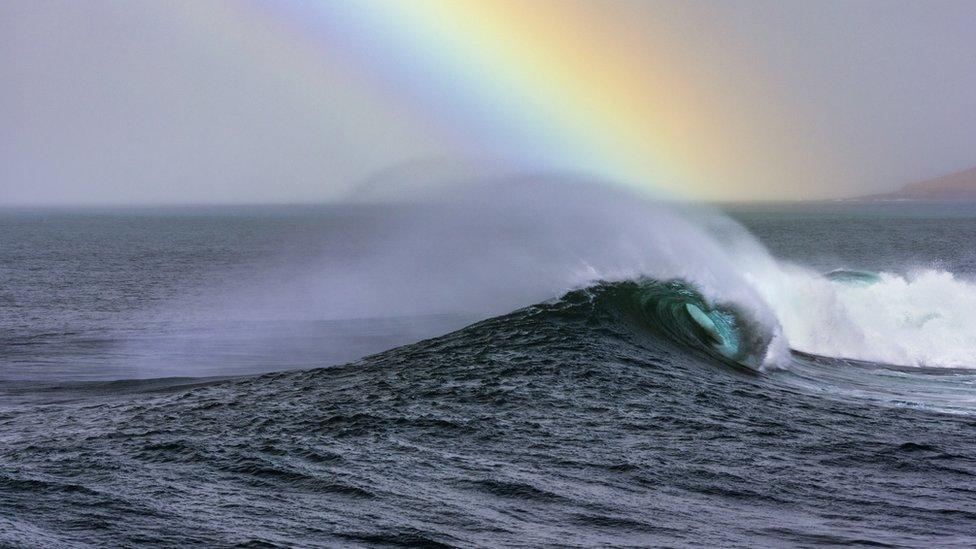Why are Highly Protected Marine Areas so controversial?
- Published
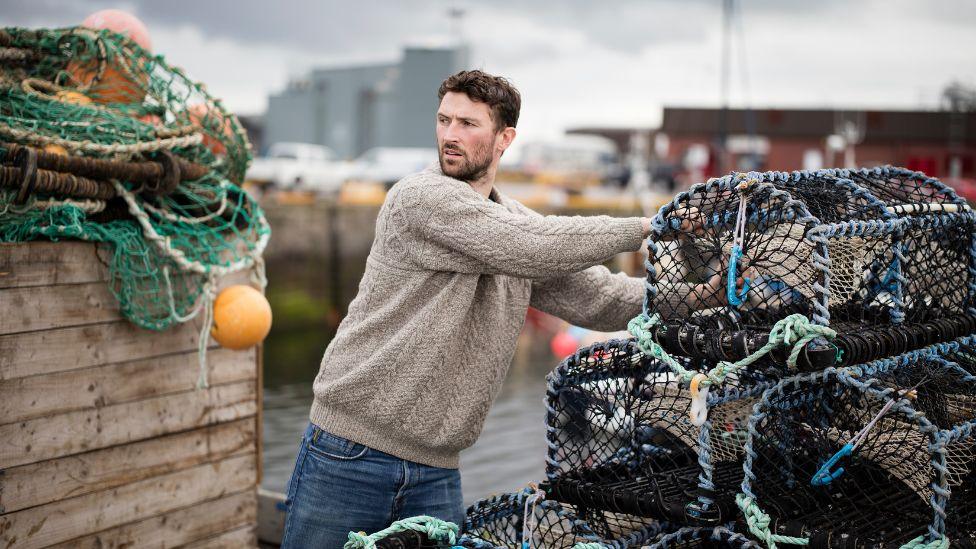
The government has been warned the scheme could have a "devastating" impact on fishing communities
The Scottish government has scrapped its controversial plans for Highly Protected Marine Areas (HPMAs).
The proposals to restrict fishing and other human activities in some coastal areas were designed to protect wildlife and the environment.
But members of the fishing industry, Highland and island communities and even some SNP MSPs had raised concerns about the scheme.
Net Zero Secretary Mairi McAllan said the government was committed to enhancing marine protection, but said the current plans would not be progressed.

What were the proposals?
As part of the Bute House Agreement - which brought the Scottish Greens into government in a historic power-sharing deal with the SNP - Holyrood ministers had committed to designate at least 10% of Scotland's seas as HPMAs by 2026.
It meant that all forms of fishing including recreational catch and release angling would be prohibited in selected sites.
Seaweed harvesting would also be banned, no new marine renewable energy schemes would be allowed and the laying of subsea cables would be restricted.
Managed levels of swimming, snorkelling and windsurfing would be allowed.
What was the aim?
About 37% of Scotland's seas are already included in Scotland's Marine Protected Areas network, external.
These areas are managed for the long-term conservation of marine resources, ecosystems services, or cultural heritage.
However, marine conservation groups warned that the proposals did not go far enough.
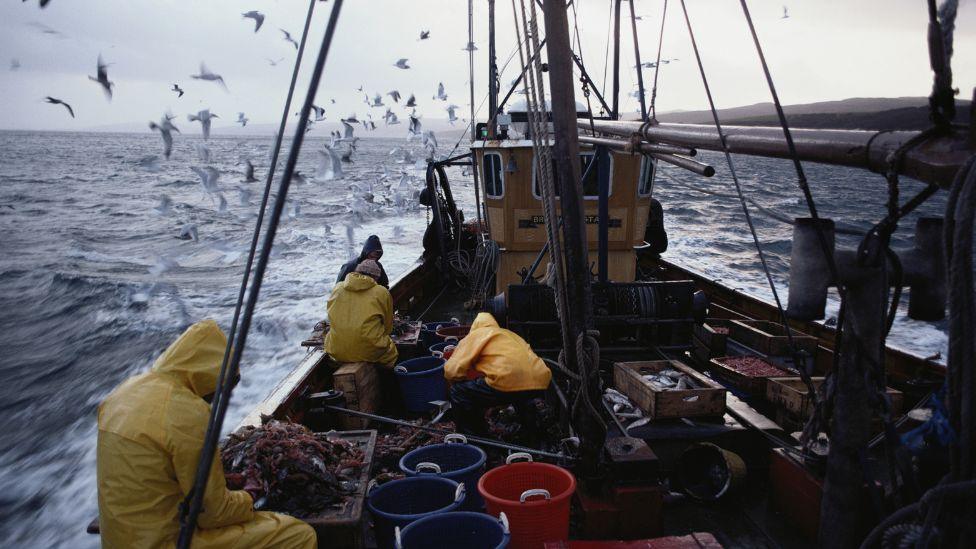
Fishing industry leaders have called for the proposals to be reconsidered
Our Seas, external - a coalition including the National Trust for Scotland, angling bodies, ecotourism firms, scallop divers, coastal communities and salmon conservation boards - called for further protection, warning that fishing stock has plummeted since a three-mile limit on trawling around the coastline was lifted in 1984.
The Scottish government also wanted it to go further. It said new HPMAs were required to protect stock, while also warning of the "twin crises" of climate change and biodiversity loss.
The Bute House Agreement stated that HPMAs aim to "provide protection from all extractive, destructive and depositional activities, including all fisheries, aquaculture and other infrastructure developments, while allowing other activities, such as tourism or recreational water activities, at non-damaging levels".
Why were fishermen opposed to it?
The Scottish Fishermen's Federation (SFF), which represents the country's fishermen's associations, warned HPMAs could have a "catastrophic impact" on the industry.
Chief executive Elspeth Macdonald said the scheme was "politically driven rather than based on robust policy analysis".
She added: "The impact on other marine users is potentially immense, and government hasn't yet been able to set out how it will assess the displacement of marine activities including fishing into other areas, or the environmental or socio-economic impacts."
The organisation urged Holyrood ministers to follow England's lead and launch a pilot scheme in some marine areas so the the impact of HPMAs can be analysed.
The Scottish Creel Fishermen's Federation also criticised a lack of detail, external about the ecological impact of the proposals.
Salmon Scotland, which represents salmon farms, warned HPMAs could lead to "significant job losses in some of our most fragile coastal communities".
Western Isles local authority Comhairle nan Eilean Siar has voiced opposition, as has Highland Council.
Such sentiments have even been popularised in new song by Celtic music band Skippinish.
The track, called The Clearances Again, external, warns "the soul will be torn" from island communities, with the fishing proposals representing "a wrecking ball through our existence".
What have MSPs said?
Former SNP leadership candidate Kate Forbes told the BBC's Good Morning Scotland programme that HPMAs could be "hugely devastating" for communities.
The Skye, Lochaber and Badenoch MSP said the scheme could lead to further depopulation in the Highlands and islands, warning people - not wildlife - could become the "endangered species".

Kate Forbes has been urged to rebel against the government
Ms Forbes insisted her position on HPMAs has not changed since she pledged to scrap it in the SNP leadership election - but said there could be a way forward if the Scottish government worked with coastal communities.
SNP MSP Fergus Ewing - who ripped up the new fisheries protection plan in the Scottish Parliament - and party colleague Karen Adam have also criticised the scheme.
Speaking in the chamber on Wednesday, SNP MSP for Na h-Eileanan an Iar Alasdair Allan said: "I have never had to confront anything quite like the issue of HPMAs before.
"A policy to which to the best of my recollection literally every single person of the many in my island community who have offered me a view is strongly opposed."
Mr Allan, Ms Forbes and Mr Ewing all voted against a Scottish government amendment which recognises that HPMAs will not be imposed on communities which are "vehemently" opposed to them.
Ex-minister Fergus Ewing angrily ripped up the plans to introduce the controversial Highly Protected Marine Areas
The Scottish Conservatives had pledged to pilot the introduction of HPMAs in their 2021 manifesto.
However they urged rebel SNP MSPs to back their call for the implementation and timeframe of the plan to be reconsidered in the vote.
Following the vote, their rural economy spokesperson Rachael Hamilton said: "Even backbench SNP MSPs have recognised the damage that Humza Yousaf's HPMA proposals would do to coastal communities right across Scotland.
"The SNP-Green government must listen to the opposition across the Scottish Parliament and from Scotland's fishermen and scrap its plans to ban fishing in large parts of Scottish waters."
Labour and Lib Dem amendments urging ministers to work with fishing communities and island communities passed unanimously.
How has the government responded?
Mairi McAllan, the government's Net Zero and Just Transition Secretary, had said she would visit coastal and island communities to hear from those directly affected.
She later announced the current plan would be ditched altogether.
She said: "It has always been this government's plan to work co-operatively with communities to identify how and where to enhance marine protection in a way that minimises impact and maximises opportunity.
"Therefore, while we remain firmly committed to the outcome of enhanced marine protection, the proposal as consulted on will not be progressed."

Net Zero Secretary Mairi McAllan announced the change of plan in Holyrood
The Scottish government said it would consult further with the industry, communities and conservation organisations about a new pathway and timetable.
The Scottish Liberal Democrats said scrapping the current proposals was a "testament to the power and voice of rural communities".
But the Scottish Conservatives said it was simply the SNP "kicking the can down the road".
- Published14 April 2023
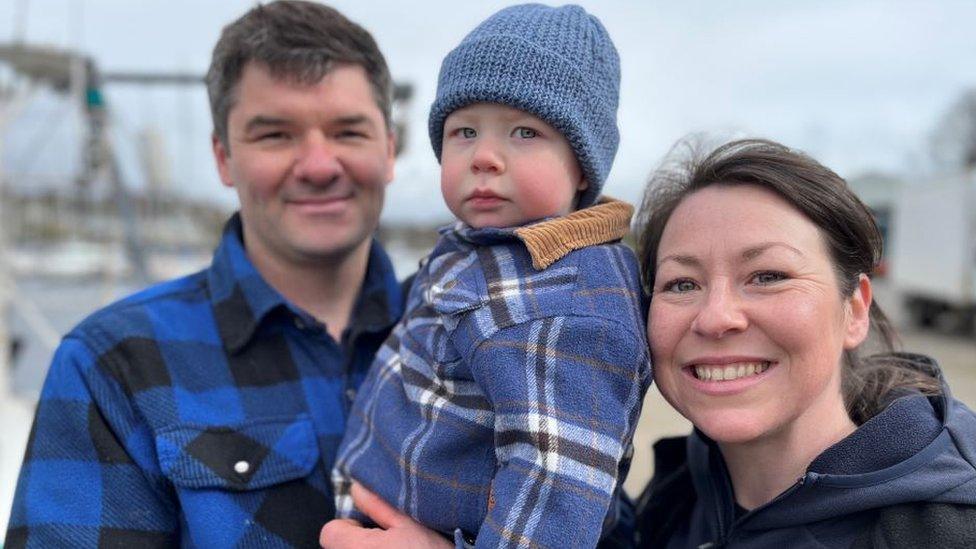
- Published15 March 2023
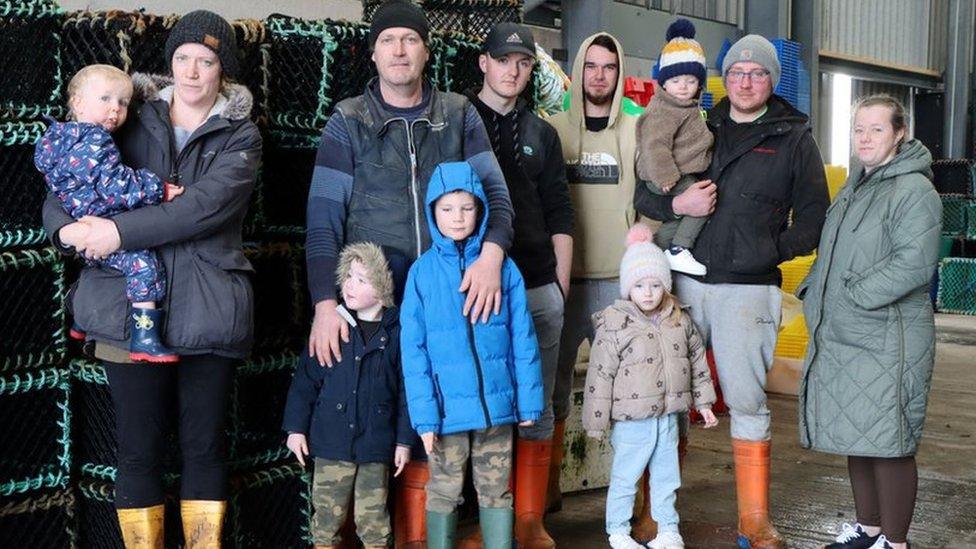
- Published10 March 2023
